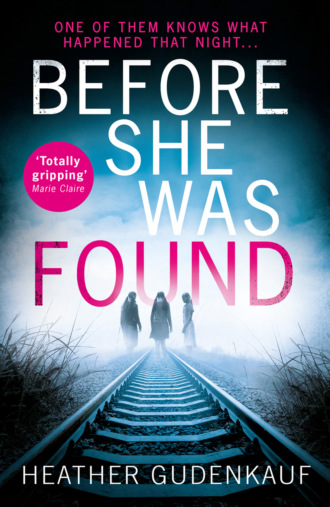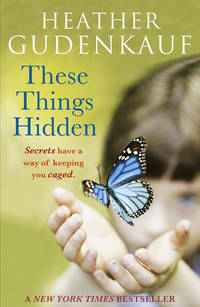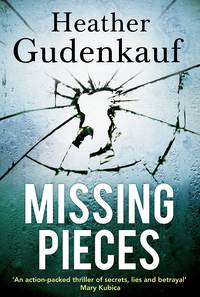
Полная версия
Before She Was Found
There’s no way that I’m going to leave this man alone in my home. “I think it’s best if you just go,” I tell him. “I’ll go and look for him myself. Thanks, though.”
“Let me drive you around, then,” Sam says, looking at me as if he really wants to help. “You can keep trying to reach him while I drive.”
He has a point. Though Pitch is just a speck on the map, I’m not so familiar with all the back roads.
My thoughts turn to a girl that Max doesn’t know I’m aware of. “There’s a girl,” I say. “I think she lives out near the fairgrounds.” I think her name is Nikki. She’s pretty in a too-much makeup, overplucked-eyebrow sort of way. She comes into the convenience store where I work several times a week—Pitch Fuel and Feed. Seriously, that’s its name. She nearly always buys the same things: a can of Red Bull, cinnamon-flavored gum and a pack of powdered-sugar donuts. Sometimes she comes in by herself and sometimes she comes in with a girl of about five who has Down syndrome. I assume she’s Nikki’s sister.
Nikki always waits patiently while the younger girl wanders the aisles with a dollar bill clutched in her hand. She doesn’t roll her eyes or heave big sighs when her sister chooses a pack of gummy worms, puts it back and then reaches for a bag of potato chips. The sister does this three or four times with different snacks and eventually always settles on the gummy worms. Nikki just waits, absentmindedly spinning the metal rack that holds everything from key chains to sunglasses. When her sister finally makes her decision, they lay their purchases on the counter and I ring them up.
I want so badly for Max to talk to me about Nikki but whenever I ask him about his friends he just says that everyone in Pitch is stupid. I try not to push it, afraid that if I do he will stop talking to me altogether.
Sam pulls open the front door for me and waits by my side as I debate whether or not to lock it. Max has a key but Violet didn’t bring hers to the overnight. “It will be fine,” Sam says. “You’ll probably only be gone for thirty minutes, tops. Your daughter’s got a phone, right?”
“Yeah, but I better leave a note,” I tell him and then dash back inside and scrawl a few words on the back of an envelope. Violet, went looking for Max. Lock the door behind you if you get home before we do. Mom.
Outside I find Sam sitting in his car, the engine idling. My car—not the one that we arrived with in Pitch, but one with fewer miles and fewer dents—is parked in the driveway just in front of Sam’s SUV. The night air is chilly and I wish I would have thought to grab a sweatshirt. I climb in next to Sam, who, seeing me shiver, cranks the heater to the highest setting.
“Where to?” he asks. Though I’m grateful for the ride, for his willingness to come along with me on this trek, a persistent voice in my head is telling me to get out of his car and into my own.
“Let’s check his friend Clint’s house first,” I say. “He lives out on Highway 162 about four miles.” Sam backs out of the gravel driveway before stopping in the middle of the street.
“Or,” Sam says, sliding his eyes toward me, “we can follow the sirens. Might put your mind at ease.”
His suggestion makes sense. We can drive all around the county and not come across Max, but if we go toward where we think the emergency vehicles went, then I’d know for sure that Max is safe. Or not.
“West, I think,” I say and Sam throws the car into gear and tears off toward the railroad tracks that split Pitch in half. No one can say that one side of Pitch is any better than the other. The north side has the Lutheran church, the library and the Fuel and Feed while the south side has the Catholic church, the middle school and the old opera house. Both ends of town have their share of foreclosed homes.
Sam turns onto Main Street and I tap my foot nervously as we pass the hardware store and an antique shop with a vintage soda machine sitting out front. He reaches for my hand and I pull it away to cover up a fake cough.
I should never have invited him over. Though tonight was our first official date, Sam and I have spent time together. He comes into the Fuel and Feed twice a week—the first on his way to see his parents and the second on his way back home. He buys a cup of coffee or a pack of sunflower seeds and we talk.
He learned that after coming to town, instead of fixing my car and heading on to Green Bay, I got a job at the convenience store, rented a two-bedroom house with peeling paint, no air-conditioning and a temperamental furnace and enrolled my kids in school. I learned that he grew up in Pitch, now lives forty miles away in North Liberty and works as a researcher in the College of Dentistry at the University of Grayling.
Tonight, with Max out with friends and Violet spending the night at Cora’s, Sam and I drove to Washington to eat at an Italian place he knew about, and after one too many glasses of wine, we ended up in bed together. Big mistake. But big fun.
We glide pass the post office and two empty storefronts with soaped-out windows and past Petit’s Bar and Grill. The closer we get to the railroad tracks, the faster my foot taps against the rubber floor mat. I want to tell Sam to turn around, to go back to the house. Max has been out all night before, shown up in the wee hours, bleary-eyed and rumpled and probably hungover, but he always comes home.
I’m afraid of what I might find once we reach the police cars or ambulances. I strain to see if I can hear the sirens, even roll down the window, but all I can hear is the rumble of the car’s engine and the creak of branches rubbing against each other as we drive down Main.
Sam slows to a crawl as he crosses the railroad tracks but still the car bounces and pitches as it rolls over the uneven iron rails. I expect Sam to make a left on Depot, a street that runs parallel to the tracks, but he keeps going. Once over the tracks we pass the bank and the tiny grocery store, and then three blocks filled with single-family homes.
I glance down Juneberry, the street where Violet is spending the night at her best friend’s house. Cora Landry invited Violet over so they could spend their free day off school together tomorrow. I breathe a sigh of relief. No ambulances down that way.
Pitch ends suddenly as if the town’s forefathers somehow knew that it would never really grow into the buzzing railroad town originally planned. Main Street turns into a country highway, treeless and lined with deep ditches and acres of farmland now hidden by the black night. The road dips and winds and gradually rises and I turn in my seat to look out the rear window. From here I can see Pitch below us.
“There,” I say, grabbing at Sam’s arm. On the western edge of Pitch right along the railroad tracks and the old millwork district I see the rhythmic swirling of red lights. Sam knew exactly what he was doing coming up here.
Without slowing down, he makes a U-turn and I clutch at the dash to keep myself from sliding across the seat. There is no train in sight. Surely if there was an accident with one of the freight trains that runs through Pitch four times a day, it would have stopped. Unless, of course, the engineer didn’t know that he hit someone. Sam pulls off to the side of the road and punches the hazards with one finger.
“Try and call Max again,” he says and I lift the phone to my ear and this time it goes right to voice mail. “Do you want to go down there?” he asks.
Apprehension, thick as mud, fills my chest. I’ve always known I would never have much money, never have a big house to live in, never have some great job, probably never get married again. And because I’ve expected so little I don’t think I’m asking too much that my kids stay safe. God and I have always had a complicated relationship, but I never held anything against Him. But if something bad happened to Max or Violet all bets are off. I don’t want to find out what’s going on down there. I will my phone to vibrate, but it stays still.
“Go,” I finally say. I’m guessing that we won’t get very close to the scene, anyway, but I have to do whatever I can to find out what’s going on. Sam pulls back onto the highway and he speeds toward the train yard. He doesn’t have to worry about getting pulled over. It looks like every police officer and sheriff’s deputy in Johnson County is parked down there.
In less than three minutes Sam manages to park just a block away from where all the emergency vehicles have converged. Two sheriff’s cars and the police chief’s SUV barricade the only entrance into the train yard where the depot is boarded up and empty boxcars, abandoned years ago, sit. An ambulance is parked a bit off to the side facing the road ready to leave in a hurry. A deputy strides toward us as we approach. He’s young. Tall and broad across the shoulders. His eyes dart left and right as if on the lookout for something or someone. He looks scared. Ill.
“You can’t be here, folks,” he says, trying to usher us back toward the car.
“We heard the sirens, saw the lights,” Sam explains. “What happened? Is everyone okay?”
“Sorry, you can’t be here,” the officer says again. Behind him someone turns on their headlights and the darkened train yard suddenly comes into view to reveal a flurry of activity. A woman wearing running tights and tennis shoes is talking to another officer. With hands tucked inside the sleeves of her sweatshirt she gestures toward the tracks and then rubs at her eyes, leaving behind a streak of red across her face.
“Is that blood?” I ask louder than I intend. Hearing me, the woman looks down at her hands and cries out.
“Ma’am,” the young officer says more sternly, “you need to leave this area.” This is when I see the EMTs come toward us carrying a stretcher to the ambulance. A small body is strapped securely to the stretcher. My breath lodges in my throat. She is shaped like my Violet. Thin with long dark hair that could belong to Violet, too, but the child’s face is nearly unrecognizable. Bloody, swollen, grotesque.
I try to push pass the officer but he steps in front of me and I bounce against his solid form and stumble backward. Sam is quicker than I am and skirts past the cop to get a better look.
“It’s okay, I don’t think it’s Violet,” he calls back to me.
“Are you sure?” I say, wanting so badly to believe him, but Sam hasn’t met my kids yet—how would he know?
“What color is Violet’s hair?” he asks.
“Black.” My heart pounds wildly.
“Then it’s not her. This girl has lighter hair.” I want to cry in relief.
From my spot on the hard-packed dirt I can now see it isn’t Violet. The girl’s ears do not belong to my daughter. The hair I thought at first glance was Violet’s isn’t naturally dark but slick and blackened with blood. This child looks a bit thinner than Violet. Still...there is something familiar about her, but it can’t be. It doesn’t make sense.
Sam comes back to my side and helps me to my feet. My stomach churns. What has happened to this little girl? What could cause this kind of damage? Not a car accident; there are no other vehicles besides the ambulance and the police cars. A fall from a bike? She’s deathly still and I wonder if she’s breathing. She looks like she could have been mauled by a dog or some other large animal. A flap of skin hangs loosely from her cheek and blood bubbles from her lips.
The EMTs lift her into the ambulance and are quickly on their way and the scream of the siren once again shatters the late-night quiet. I watch as it speeds away, the tires kicking up clouds of dust, and wonder how they are going to find out who the injured girl is. I’m just getting ready to ask the cop this question when I realize that everyone else is looking back toward the railroad tracks.
Another small silhouette appears. This time on foot, emerging from the tall winter wheat that fills the field on just the other side of the tracks.
Again my heart nearly stops.
It’s Violet.
She is moving toward us as if in slow motion. Eyes unfocused, unseeing. The front of her white T-shirt blooms red. Her hands look like they’ve been steeped in blood. Something tumbles from her fingers and lands on the dirt at her feet.
“Oh, my God,” I breathe. “She’s bleeding! Call another ambulance!”
It feels like forever until I finally reach her. I sweep her up in my arms and run my eyes over her, searching for the source of all the blood. “Help her!” I cry, laying her gently on the ground. “Please,” I plead. “What happened?” I ask Violet. “Who did this?”
Suddenly I know exactly who the other girl is. Violet’s best friend, Cora Landry. I feel arms pulling me backward and hear Sam telling me to let them do their work. Violet’s lips move but I can’t quite make out what she says.
Dr. Madeline Gideon
September 14, 2018
Every doctor has a case that haunts them. A patient that runs through your thoughts while you sip your morning coffee, that tags along during rounds and therapy sessions. The case that sits shoulder to shoulder with you during the quiet moments and slides between the sheets with you at night and whispers in your ear, You could have done more. You could have done better.
For me, that case is the girl in the train yard. She’s how I measure time. Before and after.
Disorder—easy enough to define, right? A state of confusion. A disturbance that affects the function of the mind or body. Obsessive compulsive disorder, anxiety, ADHD, eating disorder, autism spectrum disorder, schizophrenia, mood disorder, posttraumatic stress disorder. And hundreds more.
Every day, through a combination of talk, behavioral and pharmaceutical therapies, my primary goal was to provide an organized clinical experience to my patients in the evaluation, diagnosis and treatment of children, adolescents and their families.
In the twenty-odd years I had walked the halls of Grayling Children’s Hospital, first as a medical student and then as a psychiatrist, I’d seen it all. I’ve seen children who compulsively eat dirt or paint chips or sharp tacks, and emaciated sixteen-year-olds who refuse to eat anything at all. I’ve counseled children who have been neglected, beaten and sexually abused.
If it sounds like I say this with pride, I must admit that I do. Psychiatrists are scientists, after all. We are fascinated by the brain and all its intricacies. It’s not uncommon for us—in closed circles, of course—to refer to a patient by their diagnosis. I’ve got my mood dysregulation at nine and my trichotillomania at ten.
We talk this way, as if the disorders are our own. It’s challenging, at times, to remain detached, to always approach each case with a clinical, dispassionate eye. We work with children, after all. It’s easy to become enamored with the idea of playing God. Desperate parents at a loss in how to help their child who is in pain. Mental anguish is just as excruciating as physical pain, if not more.
The girl in the train yard. According to the referring doctor it was a simple case. I imagined meeting with the child once or twice. I would listen to her story. Certainly scary and traumatic, but not the worst I’ve encountered. I would nod my head in all the right spots and ask questions about what happened in the train yard. But not too pointed that she would shut down and not feel comfortable talking to me.
I would instruct the parents on what to look for in their daughter in the coming weeks: intrusive thoughts, avoidance, negative moods, anxiety. I would tell them to seek follow-up professional care for her if any of these symptoms persisted.
I wasn’t worried. I was intrigued. As I learned more I became more invested, more absorbed. Three twelve-year-old girls walk into a train yard and two come out unscathed. What doctor wouldn’t be fascinated?
I often wonder what would have happened if Dr. Soto had called another psychiatrist. Perhaps the end results would have been different. But I picked up the phone and I made the long walk down to the emergency room.
Case #92-10945
Excerpt from the Journal of Cora E. Landry
Sept. 9, 2017
Well, volleyball lasted all of four days. I knew I would suck but I figured some of the other girls would be just as bad as me and we’d just end up on the B team. No such luck. There is no B team and I actually am the worst player.
Of course Jordyn is also on the team and really good. I swear she kept serving the ball right at me and I couldn’t bump a single one. This happened like eight times in a row. At first the girls on my team were really encouraging and said, “It’s okay, Cora, you can do it!” and “Shake it off!” But after a while it was pretty clear I couldn’t do it, so they stopped saying anything.
I tried, I really did. I even dove for one of Jordyn’s serves and ended up twisting my ankle. It didn’t really hurt but I started crying. Why do I do that? The coach told me to go get a drink of water and sit out until my ankle started feeling better. I sat on the sidelines the rest of practice. Afterward, when we were changing our shoes, everyone told Jordyn how good she was. No one said anything to me, not even to ask me how my ankle was.
I told my mom and dad that I got hurt and didn’t think I’d be able to play anymore. Of course my dad was like, “You can’t quit! Landrys aren’t quitters. You’ll be fine!” and I had to go to practice the next day. And the next. And the next.
Then it was like I had a target on me. Jordyn wasn’t the only one serving the ball right at my head. EVERYONE started trying to serve or spike the ball at me. Even the ones who are nearly as bad as I am. It was so obvious. Even Gemma, who is normally nice, got this mean look on her face just before she served. I swear she glared right at me and aimed. At that point I didn’t even try. I just stood there and the ball hit me on the shoulder. Everyone laughed. Except the coach and I bet that’s because she’s paid not to laugh at the kids.
When I got in the car after practice my mom asked me how it went. I told her that I wasn’t going back. “You can’t quit,” she said and I started crying and I couldn’t stop. When we got home my mom tried to get me to tell her what was wrong but I couldn’t. It was so embarrassing. I finally told her that I hurt my ankle again and I might have sprained it or maybe even broke it.
She got me an ice pack and told me that she’d make an appointment with the doctor. Obviously, the doctor didn’t find anything wrong with my ankle but he did say that I should take a few weeks off from playing.
At school today Jordyn asked me why I hadn’t been at practice and I told her that the doctor said I couldn’t play anymore and she said that was too bad. She said it in a way that I thought she really meant it. She was so nice that for a second I actually considered going back to practice and trying again.
Gabe and I haven’t had much of a chance to talk since school started. He sits with his friends at lunch and we don’t sit by each other in social studies but he says hi to me in the hallway and my stomach does a flip every single time.
Guess what! A new girl showed up at school today. I can’t remember the last time someone actually moved to Pitch. Usually people move away from here. Or die of old age. My best friend since kindergarten moved to Illinois last year when her dad got a new job. Ellie’s mom said that Pitch was a dying town and I guess she’s right. Once the packing plant closed down lots of families left but no one who I liked as much as Ellie.
Ellie and I wrote letters and emailed back and forth for a while but then I guess she’s made new friends that keep her pretty busy. I haven’t heard from her since summer. I miss her so much that my stomach hurts. It’s so hard to go from having someone you can talk to about anything to having absolutely no one to hang out with.
After Ellie left, the world suddenly became very quiet. I can go days without anyone my age speaking to me. I told my mom that it would be much easier to keep in touch with Ellie if I had my own cell phone so we could at least text back and forth. Of course my mom said no. My parents think that I’m too young for one. Check back in when you’re fifteen, my dad said. I told him that by then everyone will have forgotten that I exist, so never mind.
The new girl’s name is Violet and she has pretty black hair and is from New Mexico. Jordyn said that her grandma saved Violet and her mom and brother when their engine exploded outside of town. She said they were standing in the dark on the side of the road when her grandma pulled up next to them in her truck. They all piled into the front cab and Mrs. Petit drove them into town and dropped them off at the Do Pull Inn.
I don’t know if I believe Jordyn. She doesn’t always tell the truth. I guess Violet and her family are going to stay because Violet says that her mom got a job at the gas station and they rented a house on Hickory Street.
I felt kind of sad after she told me that. Violet seems nice but my mom will never let me go over to her house. Hickory Street is where my sister, Kendall, and her best friend, Emery, say the meth heads live. I asked Emery how she could possibly know that and she told me to get a good look at their teeth. Without trying to be too obvious, I tried to see Violet’s teeth and they seemed just fine to me. Emery told me to check again in a few months. It takes time for enamel to turn to mush.
Not to brag, but we live in a pretty nice house. It’s made of brick that my mom says is salmon-colored. I think it looks more pinkish but whatever. I have my own bedroom and we have a rec room in the basement where we keep the foosball table, the karaoke machine and the Xbox. We have a huge trampoline in the backyard with a net around it so no one falls off and breaks their neck.
Last year, after we got the trampoline, lots of my classmates came over to try it out but that stopped once school started again and it got colder. Kendall says it’s because I’m weird and if I tried harder I’d have friends.
In social studies class we sit in pods and Mr. Dover pulled an empty desk from the corner and added it to my group so Violet would have somewhere to sit. She didn’t say much, just sort of watched everyone.
At one point, when Mr. Dover said that we were going to take the ITP tomorrow and it was a very important test that the Department of Education makes every student take to see if we could make it to college, I thought Violet was going to start crying. Violet told me that she hasn’t been to school much in the last couple of months because of the move and all.
I whispered to her not to worry, that it wasn’t that big of a deal. That all teachers seemed to talk about anymore was “college and career readiness.” I made air quotes with my fingers and Violet smiled. I was hoping that Violet would sit next to me during lunch but Jordyn got to her first. Oh, well, maybe tomorrow.
I ended up sitting next to Joy Willard, which is okay. One thing I like about my school is that they don’t let people get away with saving seats or telling people that you can’t sit next to them. If Mrs. Morris, the lady who supervises the lunchroom, sees you don’t have anyone to sit next to she’ll send you to a specific spot. I swear she’s got this superpower that kicks in the minute you carry your tray from the food line. She sees you desperately looking around the cafeteria for a place to sit and then she swoops in and points. “No arguing, Landry,” she’ll say. “Sit there and start eating. This isn’t Perkins, you know.” Even the jerks don’t talk back.
Then at lunch I felt something hit me in the back. I turned to see what it was and I saw a tater tot on the floor behind where I was sitting. I turned back around and it happened four more times. Plop, plop, plop, plop. The last tater tot landed in my hair and stuck there. I pulled it out and turned around to see who was throwing them. Jordyn and some other girls were sitting at the table behind me and were trying not to laugh. I know it was her. Violet was just staring down at her lunch tray like she didn’t see what happened. At least she wasn’t laughing.







